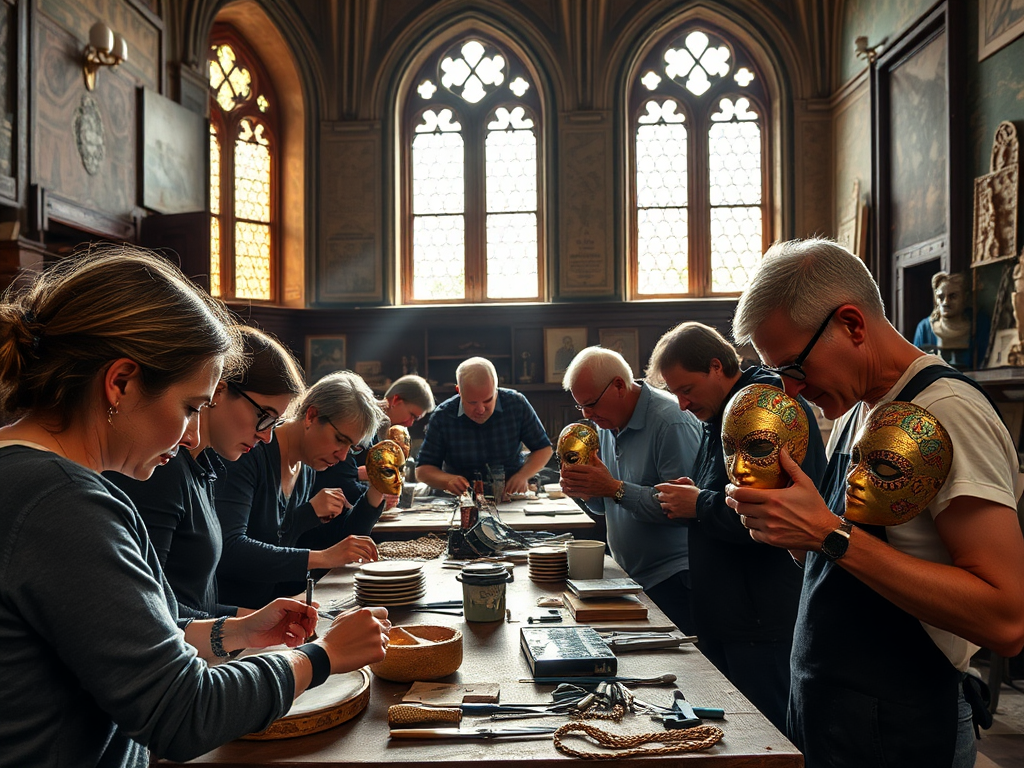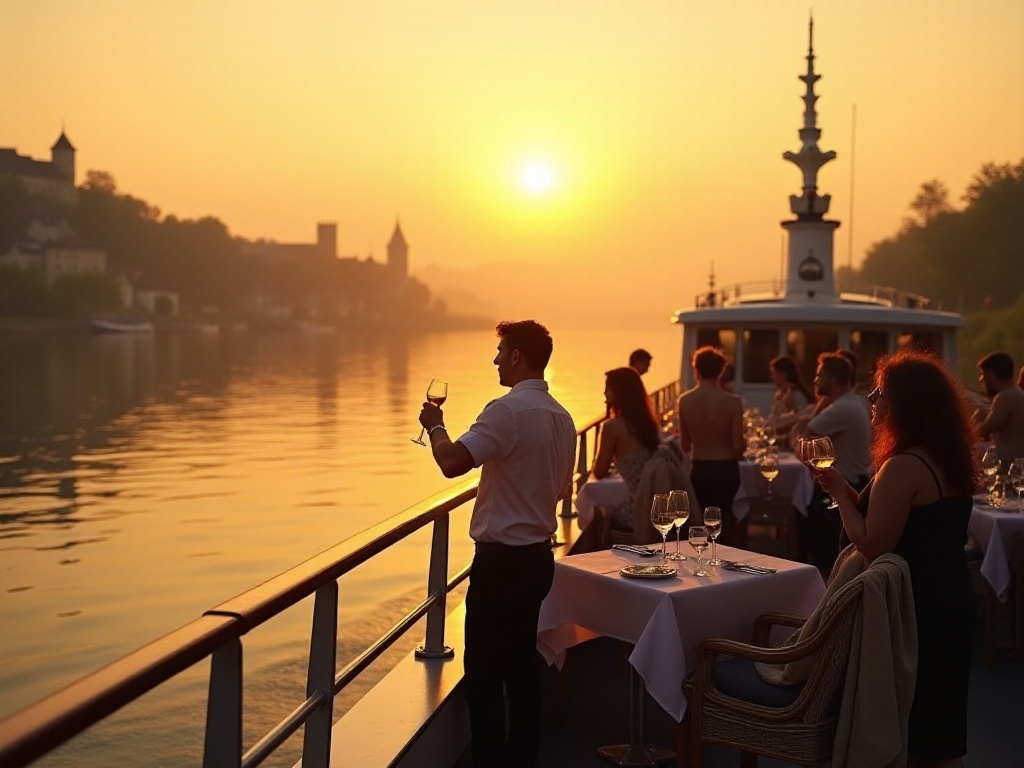Opening Remarks
Hello everyone! I've been bombarded with private messages these past few days, with many followers asking about group tours. As an experienced travel blogger who's constantly exploring the world, I have quite a bit of valuable information to share. Honestly, I have a love-hate relationship with group tours - sometimes they're super convenient, other times they feel restrictive. As someone who's experienced both the ups and downs, let me break this down for you today.
What is a Group Tour
When we talk about group tours, it's not just three or five friends traveling together. A proper group tour typically requires at least 15 people. This reminds me of my first embarrassing group tour experience when we were one person short of 15, and the entire trip was about to fall through. I ended up desperately begging my high school classmate to join at the last minute to save the tour. Looking back, I was really determined then, almost ready to get on my knees just to avoid disappointing those who had signed up.
Professional group tours usually have a complete organizational structure, including tour leaders, guides, and drivers. Each plays their role in ensuring a smooth journey. I remember a tour in Yunnan where I was particularly impressed by our guide. She was a very young lady with an amazing memory who could remember the names of over 40 people in the group, knew who had special dietary requirements, and who needed to sit in front due to motion sickness - she was like a walking map and encyclopedia combined.
Types of Tours
Modern group tours have evolved far beyond the traditional "following a guide with a flag." Based on destination, there are domestic and international tours; based on theme, there are food tours, photography tours, and hiking tours; based on demographics, there are family tours, senior tours, and girlfriends' tours, among many others.
I joined a Japanese art-themed tour two months ago, which was perfect for an art enthusiast like me. The itinerary was very well-planned, including visits to the famous Yoshitomo Nara Museum and many boutique galleries. The most exciting part was that our guide was an art history graduate student who gave incredibly knowledgeable explanations, making the journey both educational and enlightening.
Another time, I joined a Xinjiang adventure tour specifically designed for young people. We hiked in the Gobi Desert during the day and stayed in stargazing camps at night, counting stars from our tents. Everyone in the group was young and like-minded, and we quickly became friends. We still have a group chat and often plan trips together.
Some group tour programs are even more creative. I've seen polar wedding photography tours, South American jungle adventure tours, African wildlife tracking tours, and more. These innovative themes have made group tours more interesting, completely overturning the traditional stereotypes.
Service Content
Honestly, the biggest advantage of group tours is convenience. From the moment you board the bus, you basically don't have to worry about anything. Transportation? Arranged. Hotel accommodation? Booked. Dining locations? Selected. Attraction tickets? Purchased. All you need to do is show up on time and follow the group.
I particularly appreciated this comprehensive service during a group tour in Thailand. When a lady in our group suddenly fainted, the guide immediately arranged transportation to the hospital, helped with translation, and contacted the insurance company. If this had happened during independent travel, it would have been much more challenging to handle.
Moreover, many group tours provide unexpected thoughtful services. For instance, on a cherry blossom viewing tour in Japan, the guide would check weather forecasts a day in advance and adjust the itinerary based on blooming conditions to ensure we saw the most beautiful blossoms. Another time in Xinjiang, the guide carried portable oxygen tanks in case anyone had difficulty adjusting to the high altitude.
Pricing Standards
Regarding tour costs, this is indeed a concern for many people. Generally, tour prices include basic transportation, accommodation, meals, and attraction entrance fees. However, don't assume these are all the expenses.
First, there are guide tips, which are essential for international tours. In Europe, you need to give at least 10 euros per person per day in tips - that's 100 euros for a 10-day trip. Last winter when I led a tour to Northern Europe, tips for the driver and guide alone cost nearly 200 euros.
Then there are optional activities, which are most likely to exceed your budget. I remember my first trip to Turkey, where the hot air balloon ride alone cost 200 dollars. Although it was voluntary, seeing everyone else participate made me feel like I was missing out, so I eventually bit the bullet and joined.
Shopping stops are also a common part of many group tours. Guides will take the group to specialty stores, jewelry shops, and similar places. While shopping isn't mandatory, there's usually a set amount of time allocated for it. I've seen many tour members succumb to enthusiastic sales pitches and buy things they don't really need.
Regarding specific price ranges, domestic group tours can range from hundreds to thousands of yuan, mainly depending on the destination and duration. For popular places like Sanya in Hainan, a three-day-two-night tour costs around 1,000 yuan in low season, potentially doubling during peak season. For more distant destinations like Xinjiang or Tibet, a six to seven-day trip might cost 3,000-5,000 yuan.
International tour prices vary even more significantly. Southeast Asian tours are relatively affordable, with five to six-day trips typically ranging from 5,000-8,000 yuan. European and American tours are much more expensive, with 10-day trips starting at no less than 15,000 yuan, and luxury tours potentially exceeding 20,000 yuan.
However, these prices aren't fixed. The same route can vary greatly in price depending on the season and travel agency. I recommend checking various OTA platforms and comparing prices before deciding. There are often special deals available, so if you're flexible with timing, it's worth waiting for promotions.
Pros and Cons Analysis
The biggest advantage of group tours is undoubtedly the convenience. I remember when I first planned to travel independently to Turkey, just doing the research gave me a headache. Researching flights, booking hotels, planning routes, checking attraction opening times, and considering local transportation - it took an entire week and felt more exhausting than work. With a group tour, you don't have to worry about any of this as the travel agency handles everything.
This advantage becomes even more apparent when visiting places where you don't speak the language or where infrastructure is less developed. When I went to Morocco, I was especially grateful for choosing a group tour. I don't speak Arabic or French, so even calling a taxi would have been problematic on my own. With a group tour, I just had to follow the guide.
Safety is another consideration. Many places might be beautiful but have security concerns. With group tours, guides warn us about what to watch out for, which areas to avoid, and how to protect our belongings. Group travel itself is generally safer, at least reducing the likelihood of encountering particularly dangerous situations.
However, group tours do have their frustrating aspects. The biggest issue is the rigid itinerary, with practically no free time. Each day is packed from early morning to late night, rushing between attractions without time to properly experience local culture and customs.
I remember last year on a group tour to Japan, I saw an interesting little shop I wanted to explore, but the guide hurried us along saying "we're running out of time, hurry up." That feeling was particularly unpleasant - having something interesting right in front of you but not being able to stop and properly look at it.
Shopping stops are another issue. Many group tours arrange numerous shopping opportunities to earn commissions. Some guides even use sales tactics to pressure tour members. I've heard guides say things like "this shop is our long-term partner with guaranteed quality, it would be disrespectful to the owner if you don't buy anything," which makes people very uncomfortable.
Meals can also be problematic. To control costs, many group meals are of poor quality and repetitive. Once on a tour in Yunnan, we had similar cafeteria-style meals for several days in a row, to the point where I could barely eat anymore.
Special Experiences
I must say, group tours are becoming increasingly creative nowadays. Many travel agencies are working hard to develop new experiences to make group tours more interesting.
For example, the Xinjiang food tour I joined two months ago was eye-opening. Beyond regular sightseeing, it included various food experiences. We learned to make naan bread with Uyghur chefs, made kumis with Kazakh herders, and even experienced homemade pilaf in local homes. Such in-depth experiences would be hard to arrange on an independent trip.
Another time, I joined a photography tour in Yunnan. The guide was a professional photographer who not only took us to the best photo spots but also taught us composition techniques. We would wake up at four or five in the morning to catch the sunrise and stay up late waiting for starry skies. Though tiring, the photos were truly spectacular.
Now there are even more specialized themed tours. For example, there are Michelin restaurant tours for food enthusiasts to visit various starred restaurants; music festival tours that take you to experience festivals around the world; and even dating tours specifically designed for singles to meet each other.
Selection Advice
Honestly, whether a group tour suits you mainly depends on specific circumstances. I suggest considering the following aspects:
First is the destination. If you're going somewhere where you don't speak the language, transportation is inconvenient, or safety is a concern, I recommend group tours. For instance, I chose a group tour for Morocco because I don't speak Arabic at all, which would have made independent travel difficult. However, for places like Japan or Singapore with good infrastructure and widespread English use, I would recommend independent travel.
Second is time. If your holiday is relatively short and you want to see more attractions in limited time, a group tour is a good choice. The guide will arrange everything, saving you time on route planning. But if you have plenty of time and want to deeply experience local culture, independent travel is better.
Then there's personal ability. If your English is good, you can navigate maps, and you're good at communicating with people, independent travel is completely fine. But if you're not good at planning itineraries or worried about language communication, group tours might suit you better.
Finally, there's budget. Although group tours seem expensive, when you calculate all costs, they can sometimes be cheaper than independent travel. Especially for popular attractions, group tours can enjoy group discounts that might cost more if you go independently.
Important Considerations
When choosing a group tour, you must compare different options and carefully check the itinerary. I learned this the hard way after joining a so-called "five-star tour" that turned out to be rushing through attractions with numerous shopping stops. Since then, I pay special attention to these points when choosing a tour:
First, check if the itinerary is reasonable. If you find that one day includes too many attractions with almost no rest time, it's probably a trap. A normal itinerary should give tourists enough time for sightseeing and rest.
Second, look at accommodation conditions. Some tours save money by arranging stays in very remote locations or poor-quality hotels. This not only makes for uncomfortable stays but also affects the next day's mood for sightseeing.
Then check the shopping arrangements. If there are too many shopping stops with long durations at each, be cautious. Normal shopping arrangements should be brief and not take up too much sightseeing time.
Meal arrangements are also important. Some tours save money by arranging all meals at poor-quality group restaurants with limited dishes and questionable hygiene. It's better to choose tours that include local specialty restaurants, making food part of the travel experience.
Finally, check the guide's qualifications. Many travel agencies now publish guides' credentials and reviews online, which you can reference. A good guide should not only be familiar with the route but also take care of group members and provide interesting explanations.
Future Outlook
As the tourism market continues to develop, group tour formats are constantly innovating. There are now many niche customized tours, such as those specifically for photography enthusiasts that arrange optimal timing and locations for sunrise and sunset shots. There are also tours for food lovers that include many restaurant visits and cooking experiences.
I believe this kind of personalization is the future direction of group tours. Young people today increasingly value travel experiences and participation, no longer satisfied with simply visiting attractions. They want to learn new knowledge, experience different lifestyles, and meet like-minded friends during their travels.
Moreover, with technological development, group tours are becoming increasingly intelligent. Some travel agencies have developed specialized apps where tour members can check itineraries, learn about destinations, and even communicate with guides in real-time. This not only conveniences tourists but also improves service quality.
At the same time, the concept of sustainable tourism is influencing group tour development. More and more travel agencies are emphasizing environmental and cultural protection, incorporating environmental activities and cultural experiences into their itineraries. Some tours organize beach cleaning activities or visits to local artisans to learn traditional crafts.
I believe that with these new trends, group tours will become increasingly interesting and better suited to modern people's needs. Of course, whether you choose a group tour or independent travel, the most important thing is to enjoy the journey and make every trip a beautiful memory.
Please share your thoughts in the comments. If you have any other travel-related questions, feel free to ask me anytime. Let's make travel more exciting together!







